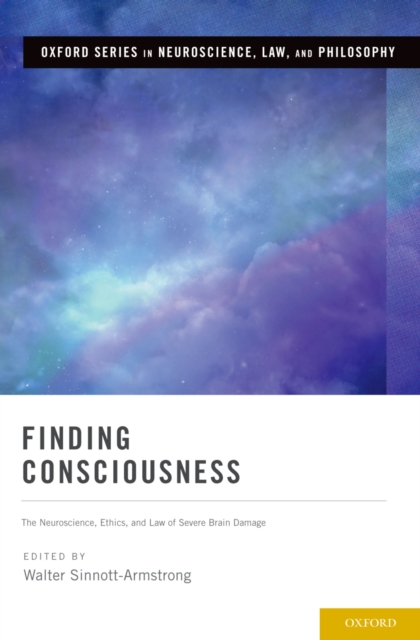
Finding Consciousness : The Neuroscience, Ethics, and Law of Severe Brain Damage PDF
by Walter Sinnott-Armstrong
Part of the Oxford Series in Neuroscience, Law, and Philosophy series
Description
Modern medicine enables us to keep many people alive after they have suffered severe brain damage and show no reliable outward signs of consciousness. Many such patients are misdiagnosed as being in a permanent vegetative state when they are actually in a minimally conscious state. This mistake has far-reaching implications for treatment and prognosis. To alleviate this problem, neuroscientists have recently developed new brain-scanning methods to detect consciousness in some of these patients and even to ask them questions, including "Do you want to stay alive?"Finding Consciousness: The Neuroscience, Ethics, and Law of Severe Brain Damage addresses many questions regarding these recent neuroscientific methods: Is what these methods detect really consciousness? Do patients feel pain? Should we decide whether or not to let them die or are they competent to decide for themselves? And which kinds of treatment should governments and hospitals make available? This edited volume provides contextual information, surveys the issues and positions, and takes controversial stands from a wide variety of prominent contributors in fields ranging from neuroscience and neurology to law and policy to philosophy and ethics. Finding Consciousness should interest not only neuroscientists, clinicians, and ethicists but anyone who might suffer brain damage, which includes us all.
Information
-
Download - Immediately Available
- Format:PDF
- Pages:256 pages
- Publisher:Oxford University Press
- Publication Date:13/01/2016
- Category:
- ISBN:9780190280314
Other Formats
- EPUB from £52.25
Information
-
Download - Immediately Available
- Format:PDF
- Pages:256 pages
- Publisher:Oxford University Press
- Publication Date:13/01/2016
- Category:
- ISBN:9780190280314






